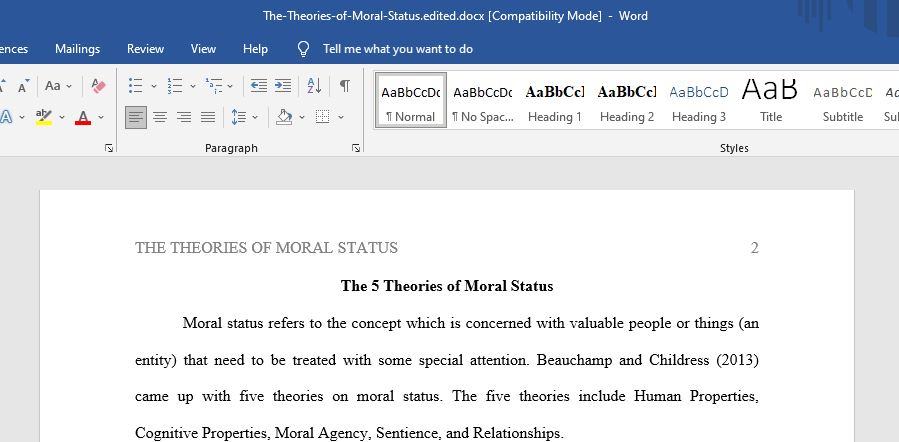The 5 Theories of Moral Status
List the 5 Theories of Moral Status Provide a brief, one-sentence summary for each theory.
There are five theories on moral status according to Beauchamp and Childress. Those theories are human properties, cognitive properties, moral agency, sentience and relationships.
Human properties theory says only human beings, or Homo sapiens have full moral status, and that only human properties have moral status upon a being.
The cognitive theory says that “cognition refers to processes or awareness such as perception, memory, understanding, and thinking and does not assume that only humans have such properties (Beauchamp and Childress, 2013, p. 69).
The moral agency theory says that an individual is held accountable if they “are capable of making judgements about the rightness or wrongness of actions and has motives that can be judged morally” (Beauchamp and Childress, 2013, p. 72).
The sentience theory says that property of sentience would indicate moral status on an individual and that they are “consciousness in the form of feeling, especially the capacity to feel pain and pleasure, as distinguished from consciousness as perception or thought” (Beauchamp and Childress, 2013).
The relationship theory says that beings are held accountable for being’s moral status. Some examples of relationship theory are established roles and obligations.
Reference
Beauchamp, T. & Childress, J. (2013). Principles of biomedical ethics. (7th ed.) New York, NY: Oxford University Press.
Grand Canyon University. (2018). PHI-413V Lecture 2. Retrieved from https://lc-ugrad3.gcu.edu/learningPlatform/user/users.html?operation=home&token=EQGt0NUxLvTFBqe6qZ7%2fjJDztK76ALYsu0XNXTnB4%2bwUJ3ZNKp3zlLfkN9UlLFza&classId=2196773#/
Answer preview:
Word: 300

